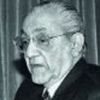India's freedom fighters fought sedition law
Lynchings became an epidemic shortly after Modi became Prime Minister.

That sedition finds a place as a criminal offence on India’s statute book is a testimony to its rulers’ moral blindness and constitutional illiteracy. It was abolished in Britain in 2009.
Only recently, a sedition case was filed in Muzaffarpur in Bihar against several eminent persons who had written an open letter to Prime Minister Narendra Modi condemning the rise in lynchings. The court was moved by a local advocate. Among them were filmmakers of eminence. One of them, Aparna Sen, deserves special mention for her courage, consistency and commitment to values.
Lynchings became an epidemic shortly after Modi became Prime Minister. The victims were mostly Muslims lynched on the suspicion of cattle trading. On October 9, the Bihar police decided to close the case as it “is found to be false”.
The framers of India’s Constitution deliberately dropped sedition in Article 19(2) as grounds on which the right to freedom of speech and expression could be subjected to even “reasonable restrictions”. But it continued to figure as a criminal offence under Section 124A of the Penal Code, 1860. It had figured as Section 113 of Macaulay’s draft penal code of 1837 but was omitted in the 1860 code. However, in August 1870, the law member of the governor general’s executive council, Sir James Fitzjames Stephen, draftsman of the Indian Evidence Act, 1870, reintroduced it to read: “Whoever … brings or attempts to bring into hatred or contempt, or excites or attempts to excite disaffection towards the government established by law in India, shall be punished with imprisonment for life…”
No self-respecting government expects the affection of its people like monarchs do. The provision of imprisonment for life reflects a colonial mindset. The aim of this was to crush Indian rebels. Official speeches of the day reveal its roots in racism. The natives were an “ignorant and excitable people”. The offence was not limited to incitement to violence.
The history of the freedom movement is studded with cases of sedition. B.G. Tilak was tried and convicted twice. In the last trial in 1916, he was defended by his friend Mohammad Ali Jinnah and was acquitted.
It was a great moment in the history of India’s struggle for freedom when Maulana Mohammad Ali, Maulana Shaukat Ali and Shri Shankaracharya were tried jointly in 1921 at Karachi for sedition, at the height of the Khilafat movement. In 1922, Maulana Abul Kalam Azad’s trial for sedition became famous for his magnificent statement in which he hurled defiance at the rulers. The speech, in superb Urdu, is available in book form in Qaul-i-Faisal.
A drafting committee member K.M. Munshi secured the deletion of sedition when the Constituent Assembly debated the draft constitution on December 1, 1948. He asserted: “The word ‘sedition’ has been a word of varying import and has created considerable doubt in the minds of not only the members of this House but of courts of law all over the world. Its definition has been very simple and given so far back as 1868.”
Jawaharlal Nehru refused to introduce sedition even when Article 12(2) was tightened to introduce more grounds. He said in Parliament in 1951: “Take again Section 124A of the Indian Penal Code. Now so far as I am concerned that particular section is highly objectionable and obnoxious and it should have no place both for practical and historical reasons, if you like, in any body of laws that we might pass. The sooner we get rid of it the better.”
Nevertheless, in 1962, the Supreme Court of independent India upheld Section 124A, which defines the offence of sedition. The Supreme Court gave its judgment in the Kedar Nath Singh vs State of Bihar case.
Kedar Nath Singh, a member of the Forward Communist Party, had delivered a speech nearly a decade earlier in which he said: “Today the dogs of the CID are loitering round Barauni. Many official dogs are sitting even in this meeting. The people of India drove out the Britishers from this country and elected those Congress goondas to the gaddi and seated them on it. The capitalists and the zamindars of this country help these Congress goondas.”
A unanimous judgment delivered remarked: “This species of offence against the state was not an invention of the British government in India, but has been known in England for centuries. Every state, whatever its form of government, has to be armed with the power to punish those who, by their conduct, jeopardise the safety and stability of the state, or disseminate such feelings of disloyalty as have the tendency to lead to the disruption of the state or to public disorder.”
Nearly half a century later, there are lawyers and judges who look up Kedar Nath’s case as a good precedent. English cases have rejected this nonsense. The UK abolished sedition through the Coroners and Justice Act, 2009. India hugs this colonial relic.
By arrangement with Dawn
